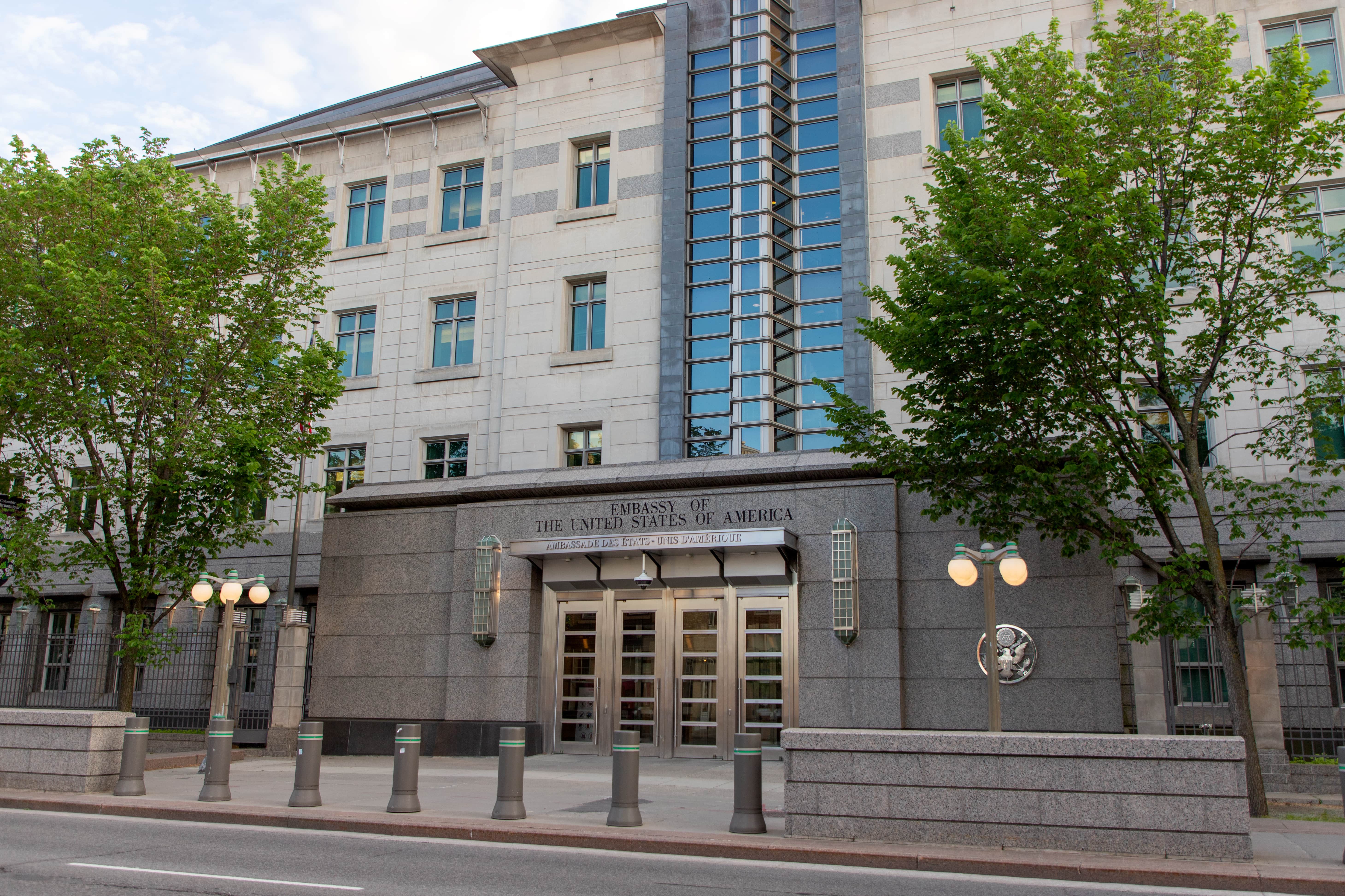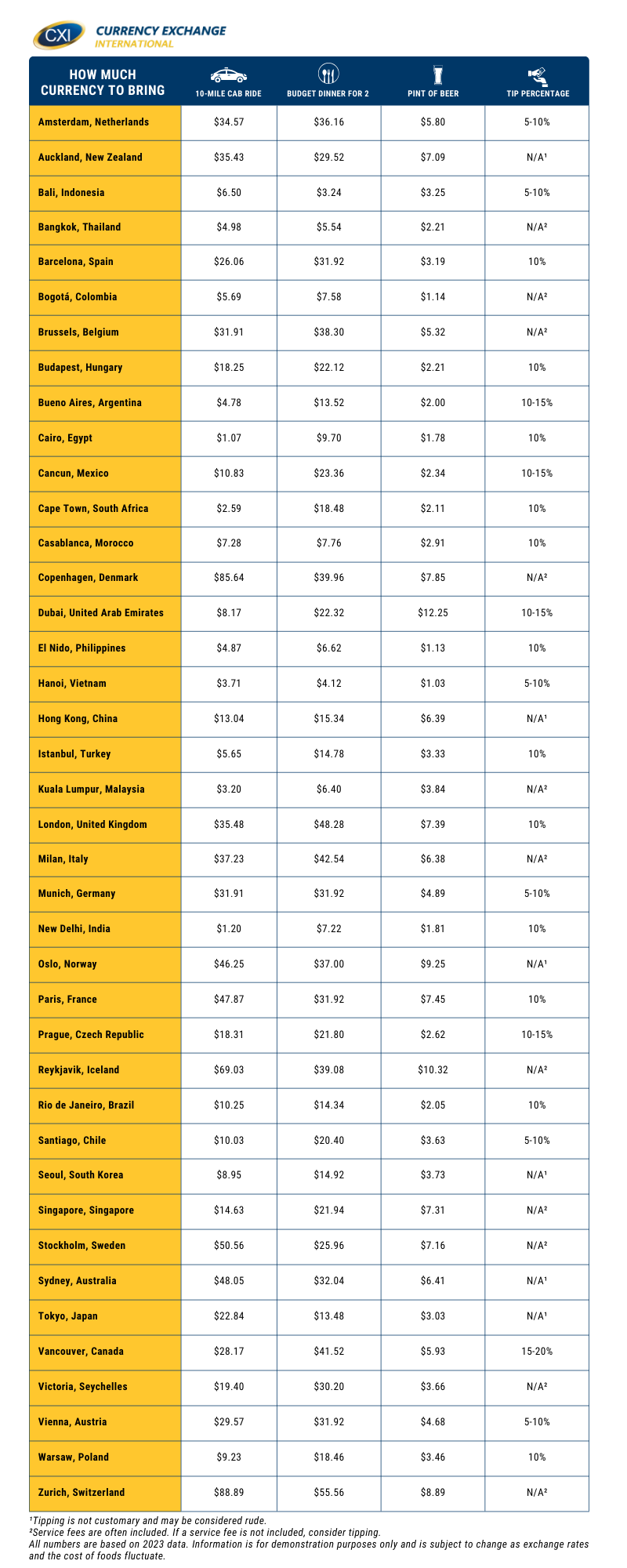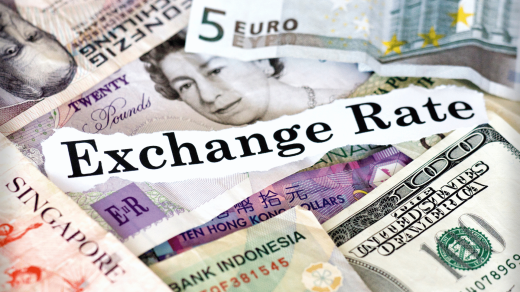What To Do in an Emergency When Traveling Outside the US

If you're getting ready for international travel, the last thing on your mind is preparing for an emergency. But the truth is that 8% of travelers report medical emergencies overseas, and 1 in 604 flights report an emergency in the air. Being proactive is key to dealing with emergencies.
We recommend knowing where your local embassy is, informing family and friends of your travels, and of course, having cash on hand. There are a few other travel tips you should know before you go.
Available in 40+ states, order your foreign currency before your trip through CXI's OnlineFX Home Delivery whenever wherever, and have it delivered to your doorstep or for branch pick-up.
See What Our Customers Have to Say
1. Think Ahead

An emergency on your trip abroad can be panic-inducing for you and your travel companions. Fortunately, you can take these proactive steps to navigate the situation with care:
- Purchase traveler's insurance before your trip. This can help pay for evaluations and hospital stays, as well as trip cancelations if necessary. Also, consider purchasing refundable plane tickets (if possible). Some riders (such as Cancel for Any Reason) allow you to pack up and go without losing your money.
- Enroll in the Smart Traveler Enrollment Program (STEP). This is a free service with the US Department of Consular Affairs that ensures friends and family members can contact you during an emergency.
- Take healthcare documentation in case of a medical emergency. This includes your health insurance card, a list of prescription medications, and a claims form.
2. Expect the Unexpected

While rare, natural disasters and civil unrest may be a threat while overseas. Floods are by far the most common natural disasters, followed by storms, earthquakes, and landslides. Here are some tips for expecting the unexpected.
- Know the country's emergency phone number (such as '911' in the United States).
Some of the most common emergency numbers include:- Canada and Mexico: 911
- UK: 999
- China: 119
- India: 108
- Japan: 110
- Germany: 110
- Argentina: 101
- Denmark: 112
- France: 17
- Jamaica: 119
- Thailand: 191
- South Africa: 10 111
- Know where the local embassy is. You can use the USEmbassy.gov web tool to look up locations, consulates, offices, and more.
3. Make Sure To Have Cash on Hand

Credit and debit cards may not be helpful during an emergency. Even if ATMs are available, high fees and expenses could sap your reserves. Here are some suggestions for bringing cash economically:
Bring cash in the local currency. Having cash on hand will help you if you need to make immediate decisions, it'll save you time and money by having cash on hand.
Convert your cash to the local currency before departure. Exchanging currency in local areas may cost up to 15% more than initially planned. Instead, you can use services like CXI's OnlineFX Home Delivery to quickly get the cash you need.
How Much Currency to Bring Chart

Currency Exchange International (CXI) is a leading provider of foreign currency exchange services in North America for financial institutions, corporations, and travelers. Products and services for international travelers include access to buy and sell more than 80 foreign currencies, gold bullion coins and bars. For financial institutions, our services include the exchange of foreign currencies, international wire transfers, purchase and sale of foreign bank drafts, international traveler’s cheques, and foreign cheque clearing through the use of CXI’s innovative CEIFX web-based FX software www.ceifx.com

 Ordering foreign currency is easy with OnlineFX.
Ordering foreign currency is easy with OnlineFX.


